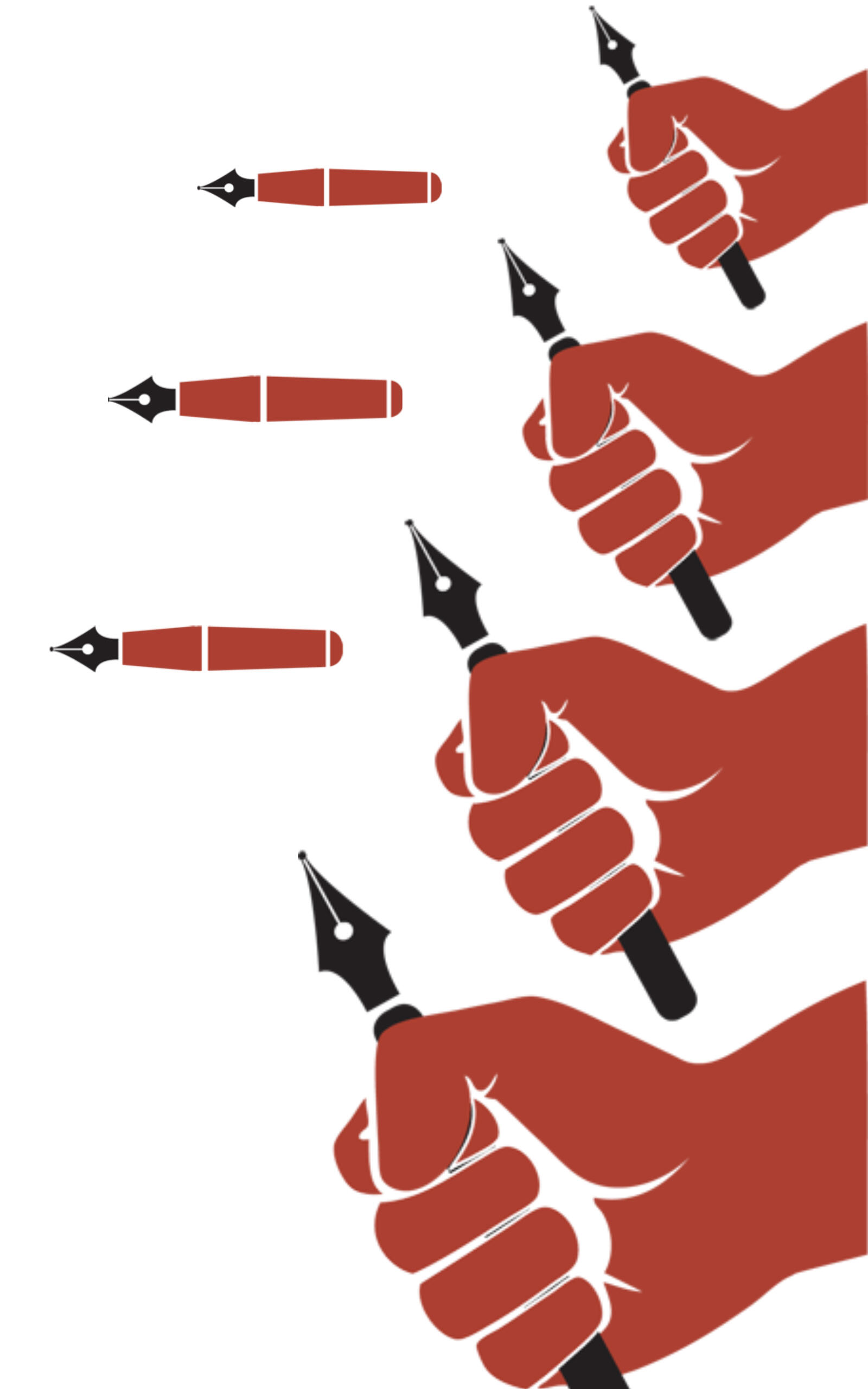
Since 2010
The Liberlit Conference
Conference for the improvement of teaching literature in Japan and beyond
Sign up below for our mailing list!
First Name / Last Name / Email
Download Liberlit Conference Program, Directions, and Information Here
June 13, 2026 at Nihon University, College of Humanities and Sciences
Conference Theme: Humanities at the Crossroads
The humanities can be defined by the paths it takes. Do we aim at pragmatism or idealism? Should we promote learning to think systematically over thinking boldly and independently? Would a focus on career preparation dilute character building? Is free self-development superior to disciplined formation? How about tradition versus newness? Which is more critical, attention to the individual or humanity as a whole?There are more crossroads, more tensions, more choices. But there is also the consensus that the humanities are under unprecedented threat. Job security, falling salaries, disappearing departments, adjunctification, and the general loss of the academy’s intellectual authority in the face of the increasingly corporate, political, and utilitarian control of universities are some of the serious problems facing the humanities. They all now lurk in the shadow of AI.For those of us who teach the humanities, these bleak choices often produce a defensive posture. We stress how numerous studies prove that the humanities creates useful, flexible, ethical and resilient graduates capable of earning as much as STEM and business graduates. Should we strengthen this defense by emphasizing the humanities’ usefulness? Or is this defensiveness inimical to an inquisitive approach? To those who question the value of the humanities, is the best answer spirited debate or no answer at all? Instead, we might embody Agnes Callard’s belief that “when we allow the humanistic spirit that animates us to flow out not only into our classrooms but also in our public-self presentation, we find we don’t need to defend or prove anything: We are irresistible.”So yes, we bring to our students the worlds of the imagination, but it is to fewer and fewer students and a waning of interest in what we do. As we face these pressing issues, Liberlit 13 invites participants to debate and discuss whether to see the humanities at the crossroads as a moment of crucial decision-making or as a meeting place of potentials and promise. Here is a partial list of ideas to consider:• Eric Hayot’s proposed path for undergraduate courses is to teach the humanities, not its disciplines, and thus frame humanities courses as big questions: What is friendship? What does it mean to have a good life? What is justice? How do feelings work? Does history have meaning? Are we alone in the universe? What does it feel like to be a migrant? Perhaps students are less interested in the traditional way of carving the humanities into geographies and historical periods.• Would undergraduates prefer classes that tell them how to do things, like eradicate world poverty, live a good life, or create political change?• At this moment of crisis, should humanities scholars focus more on teaching than research – and on doing research into teaching?• What are the best ways to combine language teaching with learning the humanities?• Are the humanities too Western? The modern humanities took shape in the American research university. Does this history exert too strong an influence?• What understanding of the humanities should inform the practical decisions of our classroom teaching?In addition to focusing on the humanities at the crossroads, as with previous Liberlit conferences, we welcome discussions of any other aspect of literature and teaching, or on the state of the humanities in general.We are also thrilled to announce that Liberlit 13 will feature a Plenary Panel on Women in Academia, chaired by Professor Natsumi Ikoma of International Christian University.As in previous years, there will also be a Graduate Student Presentation Competition. Graduate students can address either the conference theme or their own research. Please encourage your students to apply! Interested graduate students are invited to send a 150-word abstract, a short bio, and three keywords that indicate the paper’s focus. Abstracts for the competition are also due March 27, 2026.Those interested in presenting are invited to submit a 250-word proposal, accompanied by a brief bio of the author, contact information, and three keywords that indicate the paper’s focus.Panel proposals are also welcome. Please include a title, 100-word overview, paper titles and short abstracts, the names and bios of the organizer(s)/chair(s) and speakers, and everyone’s contact information.Please send all proposals to liberlitjapan@gmail.com.
Proposals are due March 27, 2026.
Conference Location
The College of Humanities and Sciences, Nihon University
3-25-40 Sakurajosui, Setagaya-ku, Tokyo 156-8550 JapanThe College of Humanities and Sciences (CHS) is located in Setagaya, Tokyo, about 10-12 minutes by local train from Shinjuku or Shibuya stations.Getting to the campus (from Shinjuku)
From Shinjuku station, take the Keio Line local train (not the Keio New Line). It usually departs every 10 minutes from platform 1, though be sure to double-check the screens.Take the local train 4 stops to Shimotakaido station, then leave the station from the West Exit, turn left and walk along Nichidai Dori [street] about 10 minutes. The CHS campus Main Gate will be on the left.The Keio Line has many levels of service (express, limited express, super express, unlimited express, even ultimate express trains that never actually stop once they’ve left the station, and are essentially lost to eternity . . .) so be careful not to board anything other than the local train.
What is Liberlit?
An annual conference on teaching literature in English in Japan
Join us to share ideas on learning literature in English
Explore new ways of teaching literature, language, and related texts
Engage with panels on the art, craft, and career of teaching literature
Graduate students present in a special forum with feedback and prizes

The liberlit manifesto
established 2010
We believe literature to be an essential element of the English curriculum in Japan, and its vital future presence must be ensured and defended. By ‘literature’, we mean authentic texts that use language in creative and careful ways to tell stories, convey impressions, express original opinions, pose critical questions and demand more than simplistic, pragmatic responses. Those texts could include poetry, novels, plays, movies, songs, TV series, or thoughtful authentic writings on culture, society, or history. Teaching literature always means teaching much more than just language. This conference will address attitudes and approaches to ‘literary’ texts in English.We lament the ongoing ‘dumbing down’ and ‘infantilisation’ of English education in Japan and the consequent marginalization of literature in the curriculum at all levels. Our conviction is that literature offers learners access to the kinds of creative, critical, and non-complacent views of the world that Japanese students sorely need and indeed, in many cases, crave. Literature has the power to engage and motivate second-language learners; its potential for multiple interpretations develops the minds of students who often believe that every question has but one answer, and the authenticity of literary texts respects them as intellectually maturing adults. Eye-opening materials and mind-widening methods should be an integral part of the education process at all levels, but are essential at university level before students go forth to live among the complexities of the ‘real’ world.The conference will explore the idea that it is unkind and disingenuous to deprive students of the marvelously varied, meaningful, and challenging content that only great works of literature and thoughtful authentic writings on culture can offer. It will also explore techniques, methods, and ways that literary texts can foreground the roots of education, liberate English language into maturely creative uses and instigate a freer, bolder expression of original opinions. With your participation, we hope this conference will open up an active and collaborative community of thought, reflection, inquiry and discussion. We hope to make this conference the first step in an ongoing forum in which we can establish how, where, and why literature should rightly figure in Japan’s English curriculum.

since 2010
Past Conferences
Click the links below for the programs from past conferences
presentations
Send in a proposal about teaching literature in English after reading the call for papers.
Graduate students
Presentation forum and award for graduate students in literature, English, film, and related fields.
community
Join us to exchange ideas about teaching literature, film, and related subjects in English.
Join us!
Sign up for our mailing list
We'll keep you posted on calls for papers and upcoming deadlines and dates for conferences.